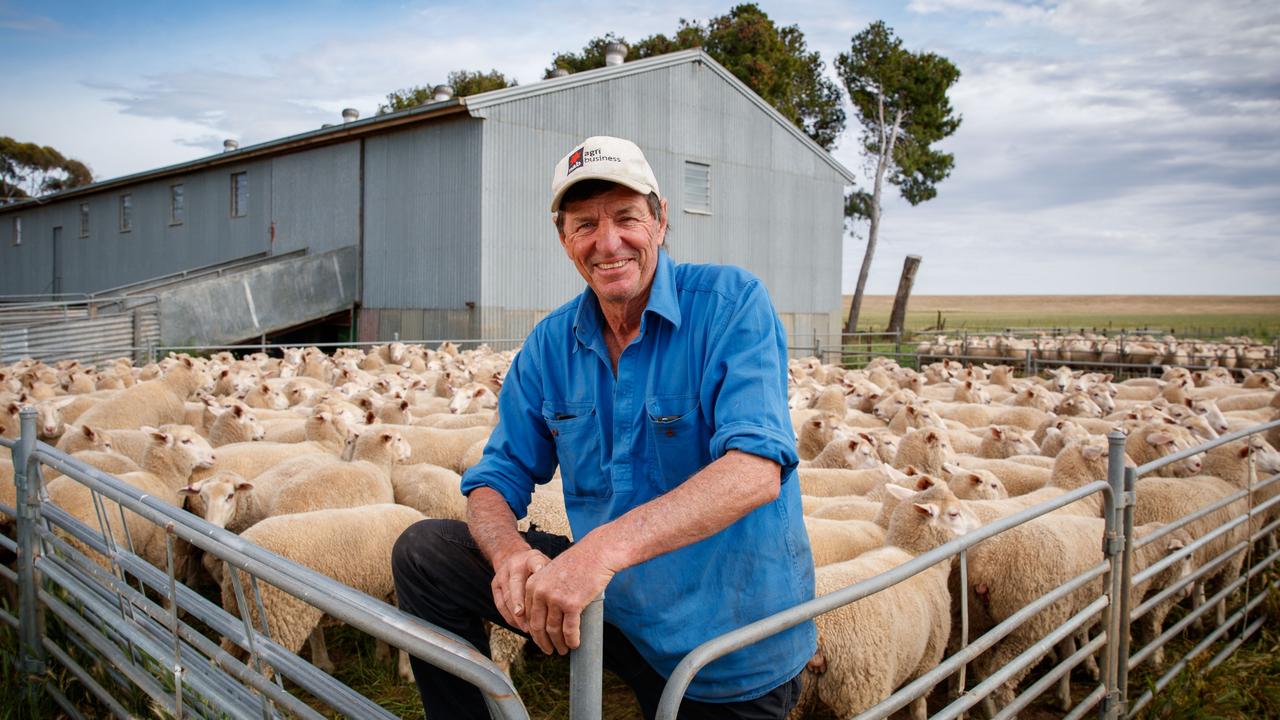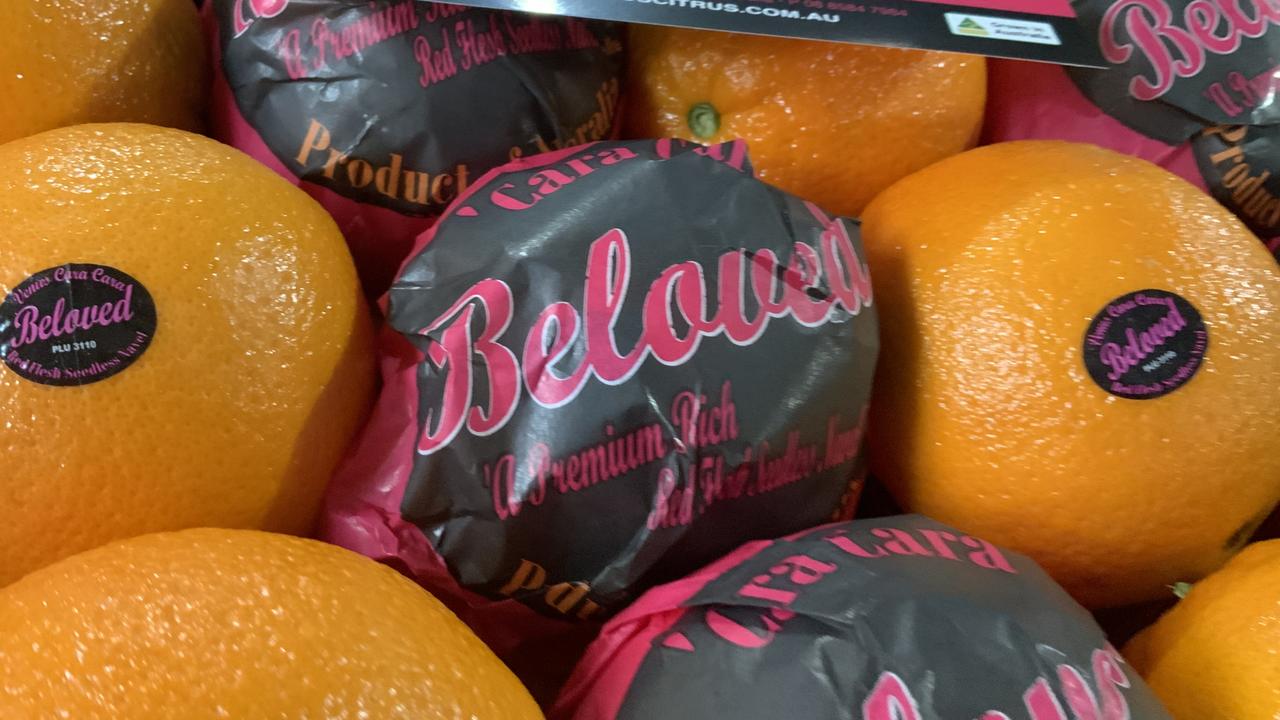Kangaroo Island wool-growing family mixes sheep with cereals
A premium wool product supports an entire island community while clean grains bring diversity.

YOU would be hard pressed to find a savvier bunch of farmers than those on South Australia’s Kangaroo Island.
Take, for instance, the Bell family of Kingscote: Rodney and Judie, and their sons, fifth-generation farmers Travis and Lachlan.
The family runs Bellevista on 3200ha over 11 properties, some of which is leased, annually producing 3500 prime lambs, running 12,200 Merinos yielding an average 5.5kg of 17.5-micron wool, as well as 1300 first-cross ewes.
Lachlan is a director of Kangaroo Island Wool — a company representing 25 island grower shareholders — and four years ago the group signed a contract with Australian Wool Network that sees their fleece sent to China where it is combed, then blended with possum fur into a yarn in New Zealand, before heading to Melbourne and knitted into garments.
“The garments — scarfs, gloves, beanies, jumpers, ponchos, the whole range, are then sold through 15 retail outlets on the island,” 36-year-old Lachlan said, adding that wool growers from other South Australian regions also contributed to the yarn.
“So at the end of the day we’re selling our wool twice, making it a premium product.
“By establishing Kangaroo Island Wool (about eight years ago) it enables the likes of AWN a pool to buy wool.”
About 1500kg of the Bell’s fleece is value-added through AWN annually, with more opportunities in the offing.

CEREAL THRILLER
THE Bell family also have about 1000ha of crops, growing wheat (yielding about 5.6 tonnes/ha), barley (hoping for up to eight tonnes/ha in the next harvest), canola (2.5 tonnes/ha) and faba beans.
As founding members of Kangaroo Island Pure Grain a decade ago, Rodney said the group has taken full advantage of the island’s clean, green, pristine image to sell grain at a premium.
“Our biscuit wheat is low protein because of climate conditions here, but it’s exactly what Allied Mills wants. They tell us about 70 per cent of the wheat in Tim Tams comes from Kangaroo Island, which means we get a premium up to $50 a tonne,” Rodney said.
“We also have a niche, premium market for our barley.
“Coopers Brewery buys it and either makes a special Kangaroo Island beer, or sends it to South Korea where they make beer.
“The Koreans were here last week making a video showing the pristine island paddocks growing the barley.”
And if that marketing savviness wasn’t impressive enough, South Australia has announced its intention to be the last mainland state to lift its GM moratorium, but Kangaroo Island will remain GM-free.
As such Kangaroo Island canola is sold to Japan as a premium, GM-free product.
“Housewives in Japan look at a brochure of canola products that shows a picture of our paddocks,” Rodney said.
MODERN APPROACH
THE 73-year-old said the farm had come a long way since his grandfather settled the Bell family portion in 1903 and he worked with his own father from the age of 18.
For much of the property’s history the focus was on wool, for a short time branching into Shorthorn, then Angus cattle.
But full diversification happened around 2001 when Travis returned to the farm after studying at Roseworthy College and after Rodney completed a stint as chair of South Australia’s advisory board of agriculture.
At that time the family also created a “game-changing” board of family members, with an independent chair, for the farming business.
“The board meets every four months and we talk in an open, frank way about ideas. Because of the independent chair, it takes the personality out of it. We should have done it years before,” Rodney said.
“It was around the same time that Travis came home that direct seeding had come about, as well as better breeding in sheep with ASBV (Australian Sheep Breeding Values), a lot of areas were pushing the envelope and it all gelled in the farm.”
More recently the family have employed an agronomist to finetune production.
Lachlan said in 2017-18 the farm could run 12.6 dry sheep equivalents per hectare, and the aim was to lift it to 20DSE/ha in the long-term through genetics and improved pastures. Under the guidance of agronomist Wayne Smith pastures have been sown to kikuyu and oversown to ryegrass in autumn.
The loam-clay soil usually receives an annual average 450mm of rain, but this year it has yet to reach 300mm. Despite this the Bells are having a “brilliant year”, with the rain that has fallen perfectly timed.
BAA MADE
CROSSBRED sheep are joined in the first week of January, with Merinos in late January.
About 150 Merino ewes are artificially inseminated every year with semen from Yalgoo Genetics, in NSW, and Billandri, in Western Australia, and via other high-performing genetics.
Genetic finetuning means the Bells are able to stock a higher density because of a more robust Merino with better worm resistance, and they have also improved the micron from 23 to 17.5 average.
Greasy yield averages about 69 per cent and staple length is 100mm, with wool from lambs shorn in late February supplying the AWN contract. Rodney said on the back of high wool and lamb prices, the number of Kangaroo Island Pure Grain members had dropped to six and more were needed.
He said while premium markets were tempting for all their grain sales, a small portion was kept on island as fodder for its 600,000 sheep population.
Travis has improved crop production through technology, including inter-sowing, controlled traffic and higher inputs of fertiliser. Where possible stubble is retained. “It’s a debate around the family dining table – Lachlan and I would like to graze sheep on the stubble, but Travis isn’t supportive because sheep can bury the seed and they compact the soil,” Travis said. “If we do graze it’s for a short time.”
Rodney said succession planning had concluded two years ago and his grandchildren were now showing an interest in the farm. “I used to be the rooster, but now I’m the feather duster. The farm is in the best of hands,” he said.


